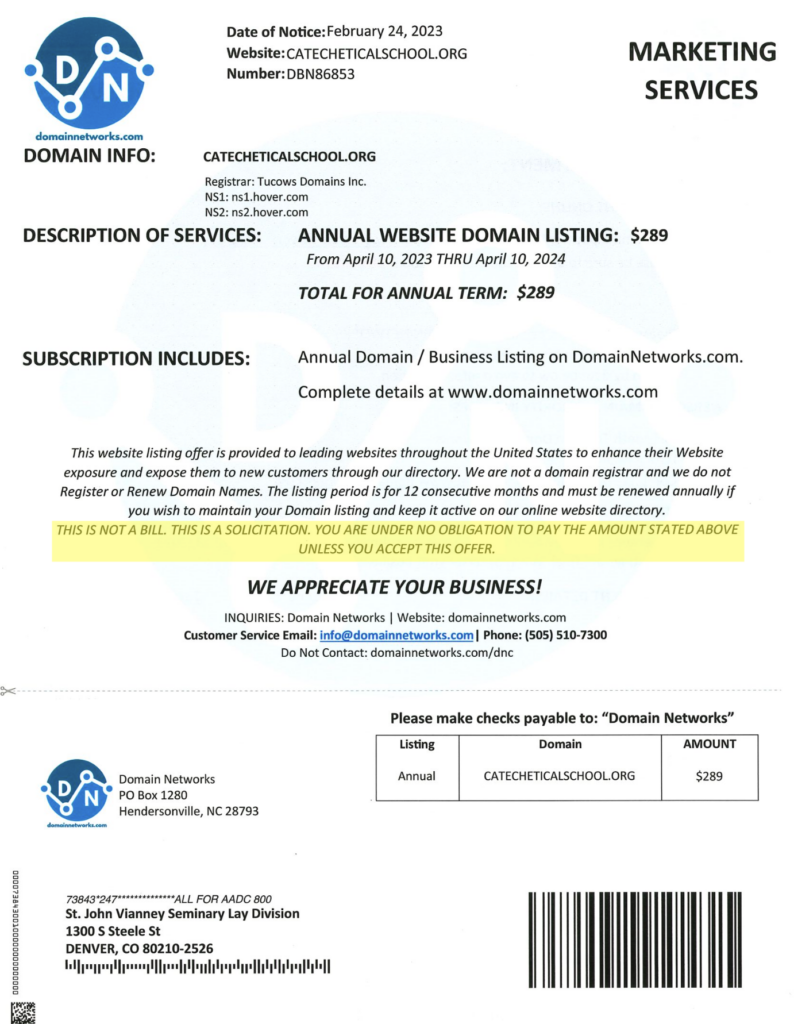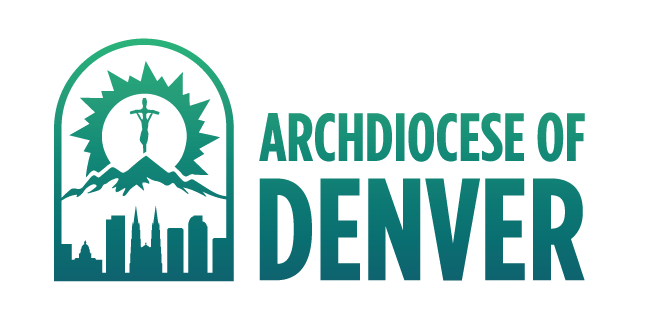In today’s digital landscape, having a strong online presence for your parish is crucial. One of your most important assets is your domain name – the gateway into your digital world. But wait, what is a domain name? If you aren’t sure what that is or would like to learn a bit more about it, read Demystifying Domain Names.
Some companies may try and use your lack of knowledge about your domain to trick you into paying for services you don’t need. It’s essential to be cautious and informed about domain scams that can lead to financial loss and reputation damage. In this guide, we will explore what to look for and effective strategies to protect yourself from website domain scams.
- Research: Before purchasing a domain or engaging in any transaction, conduct thorough research and due diligence. Consider the following steps:
- Verify the Seller: Investigate the reputation and credibility of the domain seller. Check online reviews, forums, and other trusted sources to ensure they have a positive track record.
- Examine the Domain History: Use tools like WHOIS lookup to access domain ownership information, registration dates, and any associated red flags. Be wary of recently registered domains or those with frequent ownership changes.
- Research Pricing: Compare the domain’s price with similar domains on reputable marketplaces to avoid overpaying or falling for suspiciously low prices that may indicate a scam.
- Recognize Common Scam Techniques: Stay informed about common domain scam techniques to recognize potential threats:

- Domain Slamming: Scammers send misleading invoices disguised as domain renewal notices, pressuring you to make payments for unnecessary services. Always double-check the sender’s identity and invoices before making any payments. See the image above for an example. Notice the language that we have highlighted. This is typically hidden towards the bottom of the page.
- Typosquatting: Scammers register domains similar to popular brands or websites, relying on users mistyping the intended URL. Be cautious while typing website addresses and bookmark trusted sites to avoid falling into this trap.
- Phishing Attacks: Scammers use deceptive emails or websites to trick you into revealing sensitive information like login credentials or credit card details. Exercise caution when clicking on links and verify the legitimacy of the sender or website independently.
- Choose a Reputable Domain Registrar: To minimize the risk of falling victim to domain scams, opt for reputable domain registrars and marketplaces. These platforms typically have robust security measures and offer additional protection features like domain locking, two-factor authentication, and domain ownership verification. There are a lot of good registrars to choose from, but we would like to provide a few options that we recommend:
- Hover.com
- Godaddy.com
- Namecheap.com
- Google domains
- Secure Your Domain: Once you acquire a domain, take proactive measures to secure it:
- Enable Auto-Renewal: Set up auto-renewal to avoid unintentional lapses in domain ownership that scammers might exploit.
- Protect Personal Information: Opt for domain privacy services to shield your personal information from public WHOIS databases, reducing the risk of identity theft and targeted scams.
- Use Strong Authentication: Implement strong and unique passwords for domain registrar accounts and enable two-factor authentication whenever possible to add an extra layer of security.
- Educate Your Team: If you manage your organization’s domain(s), educate your team members about domain scams and safe practices. Conduct regular training sessions to raise awareness and ensure everyone knows how to spot potential threats.
- Continuity: If you or your team member is the owner of your parish, school, or organization’s domain, take a little time to ensure that this knowledge is accessible and understood by others on your team in the case that
Protecting yourself from website domain scams requires a combination of vigilance, research, and informed decision-making. By conducting thorough due diligence, recognizing common scam techniques, and choosing reputable domain registrars, you can safeguard your online assets and avoid falling victim to fraudulent activities. Stay vigilant, stay informed, and secure your domain with confidence.

